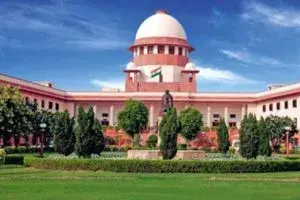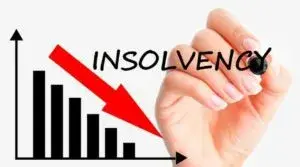India: Supreme Court relaxes ban on Petcoke, Furnace Oil for Cement Industries
India: National Green Tribunal issues arrest warrants against 12 district collectors of Maharashtra
India: Section 14(1)(a) of IBC not applicable to proceedings beneficial to Corporate Debtor
India: Setting up of Fast Track Courts for speedy trials of Legislators
India: Approval of Bill to amend The Negotiable Instruments Act, 1881
India: Supreme Court relaxes ban on Petcoke, Furnace Oil for Cement Industries
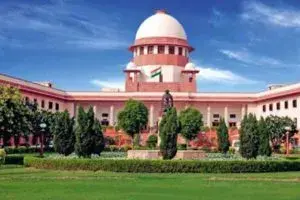
Source: https://main.sci.gov.in/
Introduction
The Supreme Court issued an exemption order, a copy of which can be found over here, dated December 13, 2017, in a Public Interest Litigation filed in 1985 by environmentalist MC Mehta, in the case of MC Mehta vs Union of India [1]. The Supreme Court vide its order permitted the use of petcoke and furnace oil by cement industries in the states of Rajasthan, Uttar Pradesh and Haryana.
Background
The Supreme Court of India on October 24, 2017, passed an order which banned the use of Pet Coke and Furnace Oil in and around the National Capital Region, effective from November 1, 2017. The Court had directed the State Governments of Uttar Pradesh, Haryana and Rajasthan to ban the use of pet coke and furnace oil in industries within each state. The order was passed based on the hearing of a PIL filed in 1985 by environmentalist MC Mehta, in the case of MC Mehta vs Union of India [2], who had raised the issue of air pollution in Delhi-NCR.
Relaxation on the Ban
A Bench headed by Hon’ble Justice Madan B. Lokur directed the Government to permit the use, and lay down regulations for use of petcoke and furnace oil and consult all stakeholders on the issue of import of pet coke. Ban has been relaxed on the use of petcoke for cement manufacturing, lime industries and on furnace oil for power generation.
The Ministry of Environment, Forest and Climate Change (hereinafter referred to as ‘MOEF”) had supported lifting the ban on use of furnace oil and pet coke for cement industry and thermal power plants on the ground that these two were used in negligible quantities by the cement manufacturers and power plants for non-fuel purposes.
The Hon’ble Court reiterated that the issue of air pollution affects all the states in equal measure, and thus the emission norms needs to be fixed by the MOEF for petcoke and furnace oil, which shall subsequently be applicable across the whole country.
[1] I.A. No. 345, Writ Petition Civil No. 13029 of 1985
[2] I.A. No. 345, Writ Petition Civil No. 13029 of 1985
Uncertainty in legality of Poker in India
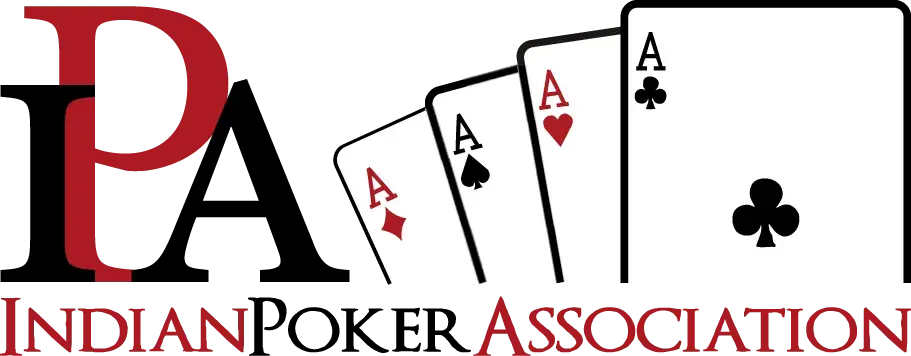
Source:ipapoker.com
Background:
On October 8, 2013, Hon’ble Karnataka High Court in
Indian Poker Association v. State of Karnataka [1]laid down that playing skill based games like poker in recreational clubs is permitted and no license is required for the same. Further, on July 2, 2015 in the case of
Kizhakke Naduvath Suresh v. State of West Bengal & Others[2] , Hon’ble Calcutta High Court laid down that the state government, police, municipal and other authorities shall not interfere in poker games conducted by the Petitioner, KN Suresh and his club.
Decision of Gujarat High Court:
The Hon’ble Gujarat High Court on December 4, 2017, laid down that poker is a game of chance rather than a game of skill which brings poker under the umbrella of gambling and hence, facilitating the organization of poker games is against the law laid down in the Prevention of Gambling Act, 1887 (hereinafter referred to as the ‘Act’). The Act defines ‘gaming’ to include wagering or betting except wagering or betting upon a horse-race, or dog race under certain stipulations.
The Petitioners in this case wanted to establish a poker room and had to approach the Court since their proposal was not entertained by city police. The Petitioners also made references to other Indian states which considered poker to be a game of skill. The Indian Poker Association also made representations and exclaimed that poker is a game of skill and lies outside the purview of gambling and hence, organizing of poker games should not be prohibited. On the other hand, the state government pleaded that poker is a game of chance and could possibly affect a large number of lives negatively in the state of Gujarat.
Hon’ble Justice Rajesh H. Shukla after hearing both the sides dismissed the petition thereby denying the request to stop police interference in organizing of poker games. It should be noted that the High Courts of Karnataka and Calcutta have earlier opined that poker is a game which requires skill and hence, stated that police/law enforcement authorities cannot interfere in the game of poker as it is not gambling.
The Petitioners are likely to file an appeal against this decision before a Division Bench of the Gujarat High Court. Note that this decision of the Hon’ble Gujarat High Court was passed two weeks after the legislature of the state of Telangana passed a Bill to ban online gambling and skill games played for stakes. In the light of the same, this decision will be perceived as an impediment not only in organizing poker games, but also for existing service provides in online poker industry.
State of conflict:
It would still be difficult to deny that game of poker requires some amount of skill and is not purely based on chance as held by Hon’ble Karnataka and Calcutta High Courts. On the other hand, the Hon’ble Gujarat High Court’s decision comes well after the decisions of the High Court of Karnataka and Calcutta High Court.
It becomes important to note here that gambling is covered under Item 34 of the State list under Seventh Schedule of Indian Constitution and is therefore, a state subject. Thus, it is the duty of state legislature and not state judiciary to be laying down the law that legalizes or outlaws poker. Also, gaming legislations in all states with the exception of Assam, Odisha and Telangana exempt “games of skill” or “games of mere skill” from the definition of gambling. This has thus, caused a lot of uncertainty in how this game should be construed legally.
_________________________
[1] WP Nos. 39167 to 39169 of 2013.
[2] W. P. No. 13728 (W) OF 2015.
India: National Green Tribunal issues arrest warrants against 12 district collectors of Maharashtra
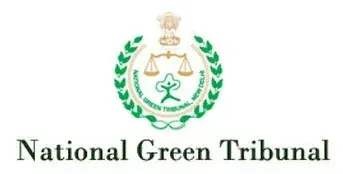
Source:www.greentribunal.gov.in
Introduction
The National Green Tribunal (hereinafter referred to as “NGT”) recently issued bailable arrest warrants against twelve (12) District Collectors of Maharashtra for non-compliance of the directives issued by the NGT last year related to bore wells.
Such directives were issued by the NGT while disposing off an Environment Interest Litigation (hereinafter referred to as “EIL”) related to high impact of fluorosis in different districts. NGT had issued seven-point directives to the district collectors of Bandara, Nanded, Latur, Beed, Washim, Parbhani, Hingoli, Jalna, Chandrapur, Jalgaon & Yavatmal Nagpur where the dependence on bore wells as a water source is very high & the fluoride levels in groundwater is high too.
Background
A Pune based trust “Sahyog Trust” had filed a petition in the year 2013 seeking to emphasize the impact of high fluoride content in groundwater on social, environment & health aspects in the above mentioned twelve (12) districts.
Collectors of all the twelve (12) Districts, Health Ministry Officials, Secretaries of various Departments and Regional Officers of the Maharashtra Pollution Control Board, and (hereinafter referred to as the ‘MPCB’) Regional Offices of the said districts were made parties in the said petition.
NGT observed that all these districts have a large number of bore wells and there had been violations of the norms & rules regulating the depth of the bore wells as well as the distance between two such wells.
NGT had asked the Maharashtra Pollution Control Board to submit a consolidated ‘action taken’ report to curb the issue of fluoride level in groundwater as many people suffer from skeletal and dental fluorosis due to the ground water from such bore wells that have higher levels of fluoride, nitrates, iron, and alkaline content than what is permitted.
Present Action Taken by NGT
However, after waiting for almost two (2) years to receive action taken reports, the NGT took suo motu cognizance of non-compliance and has issued the bailable arrest warrants against all the twelve (12) district collectors.
India: Section 14(1)(a) of IBC not applicable to proceedings beneficial to Corporate Debtor
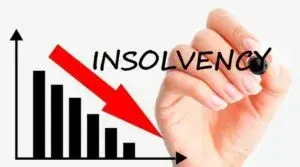
Introduction –
The Delhi High Court in the case of Power Grid Corporation of India Ltd. vs Jyoti Structures Ltd.[1] , vide its order dated December 11, 2017, ruled that Section 14(1)(a) of the Insolvency and Bankruptcy Code, 2016, (hereinafter referred to as the ‘IBC’) would not apply to proceedings which are beneficial to the corporate debtor.
Legal provision –
For the purposes of the above order, let us look into the relevant provision, viz. Section 14 (1) (a) of the Code, which provides that –
“The Adjudicating Authority shall by order declare moratorium for prohibiting all of the following, namely:
(a) the institution of suits or continuation of pending suits or proceedings against the corporate debtor including execution of any judgment, decree or order in any court of law, tribunal, arbitration panel or other authority;”
Brief facts of the case –
The Petition was filed by the Power Grid Corporation of India Ltd.(hereinafter referred to as the ‘Petitioner’) under Section 34 of the Arbitration and Conciliation Act, 1996, (hereinafter referred as “the Act”) for setting aside the arbitral award dated May 20, 2016, passed by the arbitral tribunal in favour of the Jyoti Structures Ltd. (hereafter referred to as the Respondents). The award is in nature of a pure money decree in favour of the Respondent.
During the pendency of the proceeding under section 34 of the Act, an application under
Section 7 of the Code was filed by a financial creditor against the Respondent company before the National Company Law Tribunal, Mumbai, (hereinafter referred as “the NCLT”) seeking initiation of the corporate insolvency resolution against the Respondent and by an order dated July 4,2017, the NCLT has admitted such application and has declared a moratorium in terms ofSection 14 of the Code.
The question arose whether the proceedings under Section 34 of the Act need to be stayed, as per Section 14(1) (a) of the Code.
The Respondents submitted that if the proceedings are stayed, they would be unable to execute the award given in their favour for an extended period till the moratorium exists and will be unable to recover the dues, thereby further impeding their financial condition.
Observations of the Court –
The Single Judge Bench of Justice Yogesh Khanna observed that –
“In the light of above purpose or object behind the moratorium, Section 14 of the Code would not apply to the proceedings which are in the benefit of the corporate debtor, like the one before this Court in as much these proceedings are not a “debt recovery action” and its conclusion would not endanger, diminish, dissipate or impact the assets of the corporate debtor in any manner whatsoever and hence shall be in sync with the purpose of moratorium which includes keeping the corporate debtor’s assets together during the insolvency resolution process and facilitating orderly completion of the process envisaged during the insolvency resolution process and ensuring the company may continue as a going concern.”
Further, the Court highlighted the report of the Bankruptcy Law Reforms Committee relied upon by the Supreme Court in the case of M/s Innovative Industries Limited vs. ICICI Bank & another[2], –
“The report of the Bankruptcy Law Reforms Committee on the rationale and design of the Code also demonstrates the moratorium is to apply to recovery actions and filing of new claims against the corporate debtor and the purpose behind moratorium is there should be no additional stress on the assets of the corporate debtor.”
Court order –
After careful observation of the case, the Court held as follows –
- ‘Proceedings’ under Section 14 (1) (a) do not mean ‘all proceedings’.
- Moratorium under Section 14(1) (a) of the code is intended to prohibit debt recovery actions against the assets of corporate debtor.
- Continuation of proceedings under Section 34 of the Arbitration Act which do not result in endangering, diminishing, dissipating or adversely impacting the assets of the corporate debtor are not prohibited under Section 14(1)(a) of the code.
- The continuation of these proceedings shall cause no harm to the rights of either party to seek determination of issues under Section 34 of the Act and object of the code shall be preserved rather than defeated.
____________________________
[1]
https://indiankanoon.org/doc/43260542/
India: Setting up of Fast Track Courts for speedy trials of Legislators
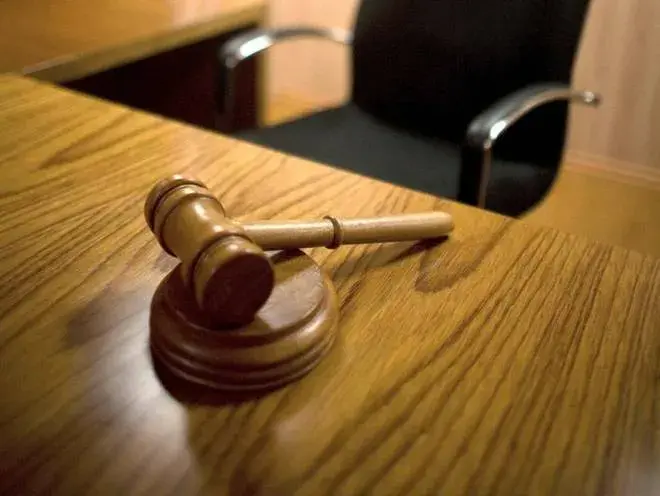
Source:www.thehindu.com
Introduction –
The Supreme Court of India, on December 14, 2017, in the case of Ashwini Kumar Upadhyay vs Union of India, directed the State governments and respective High Courts to ensure that twelve Special Courts are set up and mooted by the Centre to deal with cases related to the legislators/politicians of the country. These Courts as per the direction shall be functional from March 1, 2018.
Need for setting up Special Courts –
In recent years, there have been many politicians in our country who have been facing prosecution due to their corrupt/criminal conducts. As of 2014, approximately 1,581 legislators[1] , viz. Members of Parliament (MPs) and members of legislative assemblies (MLAs), were facing prosecution in 13,500 cases. Though the exact number cannot be determined at present, it is for this very reason that the need for setting up Special Courts is critical.
Earlier Direction by the Court –
Previous to this direction, the Supreme Court on November 1, 2017, had earlier directed the Centre to establish a Central Scheme to set up Fast Track Courts. The purpose of this scheme was to exclusively deal with criminal cases pending against legislators/politicians. The Centre was then directed by the Supreme Court to submit the amount of funds required to set up these Courts.
Action taken by the Centre –
Following this direction, the Centre through its affidavit had stated that it would set up twelve Special Courts for a period of one year. The Centre relied on the report of the 11th Finance Commission for setting the number of the proposed courts. The report stated that one such court could dispose 165 cases per year.
With regards to the funds required, the Centre stated that it has earmarked INR 7,80,00,000 (USD 1217580 approx.) for setting up these twelve Special Courts. This amount was calculated based on the cost of setting up one such court which is estimated to be INR 65,00,000 (USD 101465 approx.). This estimation also accounted for the revised pay scales of judges in light of the 7th Central Pay Commission.
Hearing dated December 14, 2017–
Acknowledging the submissions made by the Centre in its affidavit, the Court proceeded to give the following direction regarding the distribution of funds earmarked for the purpose –
“The Union of India in its additional affidavit has further stated that a sum of Rs.7.80 crores has been earmarked as the required expenditure for the setting up of 12 Courts and the Department of Expenditure, Ministry of Finance has granted in-principle approval to the said allocation. Having considered the matter we direct the Union of India to proportionately allocate the aforesaid expenditure i.e. 7.80 crores to the different States in which the Special Courts are planned to be located. This should be done forthwith.”
Direction issued by the Supreme Court –
“Immediately after such allocation is made and intimated to the respective State Governments, the State Governments in consultation with the High Courts will set up the Fast Track Courts (12 in all) to ensure that the said Courts start functioning from March 1, 2018. All necessary/required notification(s) shall be issued by the concerned/respective State Government(s).
The High Court(s), acting through various trial Courts, will trace out from the case records the particular case(s) pending in the files of the respective judicial officers under the jurisdiction of the High Court(s) which are required to be dealt with by the Special Courts under the Scheme and thereafter transfer the said cases to such Special Courts(s) for adjudication.”
The case has now been listed for hearing on March 7, 2018.
________________________________
[1] https://timesofindia.indiatimes.com/india/criminal-politicians-centre-
agrees-to-special-courts-to-deal-with-cases-against-mps-mlas/articleshow/62036742.cms
India: Approval of Bill to amend The Negotiable Instruments Act, 1881
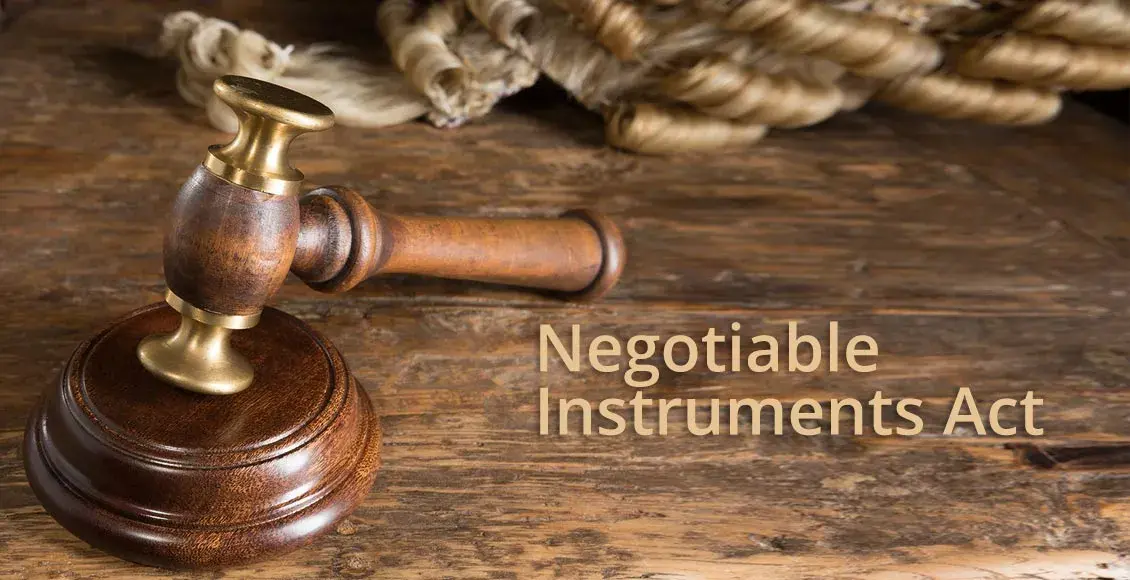
Source:legalconclave.com
Introduction –
The Union Cabinet recently gave its approval for a Bill to amend the Negotiable Instruments Act, 1881. The proposed amendments to the Negotiable Instruments Act, 1881 (hereinafter referred to as the “NI Act”) focused on clarifying the jurisdiction related issues for filing cases for offence committed under Section 138 of the Act.[1]
Need for amendment –
Presently, various financial institutions and industry associations have expressed concerns and difficulties due to the legal interpretation by the Supreme Court wherein they stated that the place of jurisdiction for filing cases will be the place of the drawers’ bank.[2]
The amendment will provide clarity on jurisdictional issues relating to cases concerning cheque bouncing, due to which many cases are pending before the Courts. The amendment is meant to increase the credibility of cheques as a financial instrument. This would further be in the interest of the complainants while ensuring fair trial.[3]
Features of the Amendment –
One of the main features of the amendment is to provide for interim compensation to the payee of a cheque, both at the trial stage and at the appellate stage. As per the amendment, the Courts will now be at liberty to order interim compensation to the payee of a cheque, during the trial stage itself. If the drawer is acquitted, the payee shall repay the amount paid as interim compensation with interest upon direction from the Court. Further, Appellate Courts will also be enabled to order the Appellant to deposit a part of the compensation awarded by the trial court at the time of filing of the appeal.
The Amendment is also meant to boost trade and commerce in general and allow the lending institution, including banks, to continue to extend financing of the economy, without the apprehension of loan default on account of bouncing of a cheque.
____________________________________
[1] https://www.thehindubusinessline.com/economy/policy/nod-to-
amend-negotiable-instruments-act/article9994756.ece
[2] https://www.business-standard.com/article/news-ians/cabinet-
approves-ordinance-to-amend-negotiable-instruments-act-
[3] https://www.tribuneindia.com/news/business/promulgation-of-


